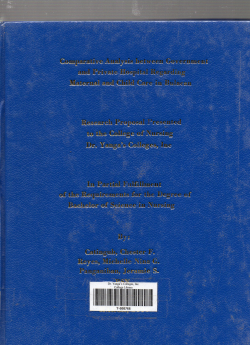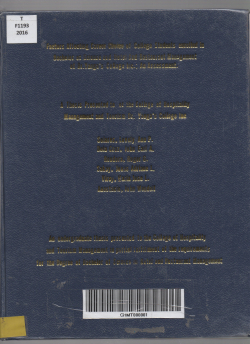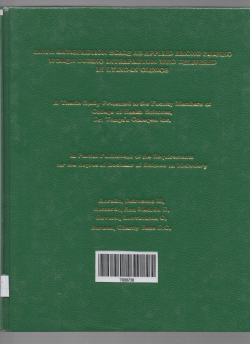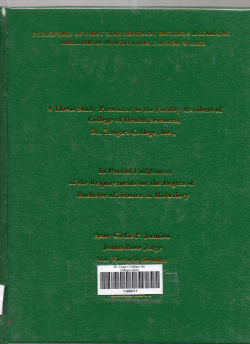INFLUENCE OF PRIOR MISCARRIAGE TO SUBSEQUENT PREGNANCY AND PARENTING OF FILIPINO MOTHERS
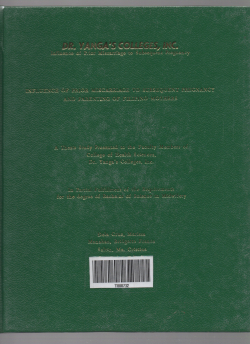
Type
Thesis
Authors
Category
CHS
[ Browse Items ]
Subject
Prior Miscarriage
Abstract
The loss of any pregnancy through miscarriage is a significant event for any woman and often presents as a major crisis in her life. This life crisis comprises many losses including, but not limited to, the loss of future hopes and dreams, loss of self- esteem, loss of the anticipated parent role, loss of being pregnant, loss of prenatal medical attention, and concern over the potential loss of the ability to create another new life. With this, This research therefore aims to to describe the influences of prior miscarriage to a mother’s subsequent pregnancy as well as how such experience influences these mothers’ parenting with their live-born children.This research study followed a descriptive-qualitative method of research inquiry which entails a semi-structured one- on-one interviews of the mother informants using open-ended questions related to the research study topic. Findings highlight the importance of tailoring support systems to mothers’ needs. Mothers have also reported lack of opportunities for grieving as well as the high level of anxiety about their baby’s wellbeing during pregnancy and after birth implies a need for structured support. Difficulties experienced in bonding with the subsequent child during pregnancy and once the child is born need to be normalised. Some mothers may require additional support during subsequent pregnancy and the postpartum period to prevent the development of attachment difficulties. Most of them highlighted that their next child was not a “replacement” and did not alleviate their grief fully. From the Filipino mothers’ context, this contradicts the replacement child syndrome among such mothers. Moreover, feelings of self-blame and guilt were highlighted and healthcare professionals need to be aware of the possille impact on parental mental health and parenting style.On the basis of the findings, the following are recommended: To the Grieving Mothers (Parents) — Parents, particularly the mothers’ reported lack of opportunities for grieving, suggests that signposting to additional forms of support where opportunities are given to express and work through this may be helpful e.g. support groups or grief counselling. The high level of anxiety and worries of both parents about their baby’s wellbeing during pregnancy as well as after birth implies that support should be offered to normalise and contain these fears.To Obstetric staff (Midwives) — Since findings also show that mothers’ difficulties experienced in bonding with the subsequent child during pregnancy and once the child is born may need to be normalized. Some mothers may also need a period of adjustment immediately following labour and obstetric staff should respond sensitively to these needs. Obstetric staff should also provide a safe and supportive environment through home visits, teaching anxiety management techniques and facilitating diary writing. Moreover, healthcare professionals need to be aware of self-blame and guilt and the possible impact on parental mental health and parenting style. Professionals need to also be sensitive with their use of language as to not further increase feelings of self-blame. It is therefore recommended that bereavement counselling actively attends to feelings of shame and guilt and due to the role of fathers’ survivor guilt on women’s grief, couples counselling may be beneficial.
Number of Copies
1
| Library | Accession No | Call No | Copy No | Edition | Location | Availability |
|---|---|---|---|---|---|---|
| Main | 1111 | T In43 2017 | 1 | Yes |
